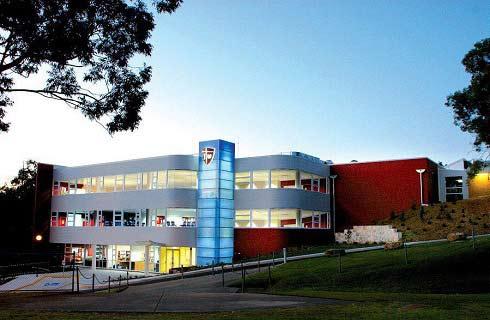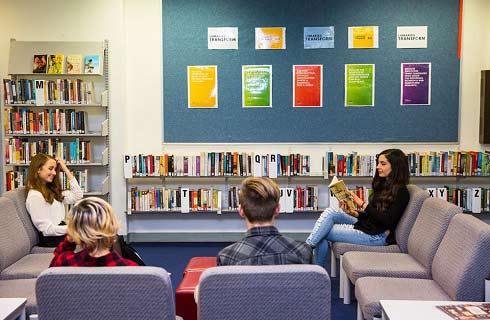语言学文学士
Bachelor of Arts in Linguistics

学历文凭
Bachelor Degree

专业院系
Linguistics

开学时间

课程时长

课程学费

国际学生入学条件
Completion of a high school diploma (or an equivalent) prior to enrollment. English Language Proficiency: Applicants whose first language is not English are required to demonstrate English proficiency in one of two ways: 1. Completing at least two years of full-time study in an English language curriculum prior to submitting an application. 2. Submitting one of the following official test scores. Test of English as a Foreign Language (TOEFL)* (Internet-based test) minimum score of 100 International English Language Testing System (IELTS) minimum score of 7 Duolingo minimum score of 130 To be considered official, all scores must be sent directly from the testing organization. *TOEFL iBT Home Edition will be accepted and TOEFL ITP PLUS will not be accepted.
IDP—雅思考试联合主办方

雅思考试总分
7.0
- 雅思总分:7
- 托福网考总分:100
- 托福笔试总分:160
- 其他语言考试:Duolingo - 130
CRICOS代码:
申请截止日期: 请与IDP联系 以获取详细信息。
课程简介
Program Learning Outcomes for the BA Degree with a Major in Linguistics<br>Upon completing the BA degree with a major in Linguistics, students will be able to:<br><br>Demonstrate the ability to perform independent research about languages and their speakers, including the ability to ethically complete field work, collect data, analyze data, utilize laboratory and computing technologies, draw meaningful conclusions from data, and convey research results effectively orally and in writing.<br>Identify and define the main approaches for researching language structure and use at all levels (sounds, words, grammar, meaning, social/cultural interaction), as well as be able to evaluate critically and apply the primary concepts, vocabularies, methods and theories in their own work.<br>Appreciate the diversity of language and the ways in which it changes over time. They will be able to analyze the diversity of sounds and grammar in the world's languages. They will also understand the diversity of regionally-, socially-, and ethnically-defined varieties within a single language. Students will be able to explain why this diversity is relevant to everyday life and how it is crucial to fields both inside and outside of linguistics.<br>Understand the systematic relationships between language structure and language use, and how these in turn relate to cognition, culture, identity, and society.
相关申请
 预科
预科 奖学金
奖学金 实习机会
实习机会 在校学习
在校学习 跨境学习
跨境学习 校园授课-线上开始
校园授课-线上开始 在线/远程学习
在线/远程学习
开学时间&学费
学费信息仅供参考,请与IDP联系以获取详细信息
| 开学时间 | 时长 | 学费 | 地点 |
|---|
学校排名

世界排名86
数据源:
泰晤士高等教育世界大学排名
关于莱斯大学

莱斯大学是西南部最好的大学,在整个南部也只有杜克能与其相提并论。多年来以科学、工程、艺术、人类学闻名,并始终秉承低廉的学费与高水平教学并存的态度。建筑学是全美最好的本科项目之一,同时它的空间物理学科与美国国家航空航天局紧密合作。在梅隆研究员项目中,人文和社会科学专业将与教师导师们合作,共同进行学术项目的研究,同时会提供一定的夏季研究津贴。莱斯大学鼓励学生们选双专业、甚至三专业科学与工程学都是最好的学科,因此,这两门学科的竞争也特别的激烈。学校大概有4%的学生选择了双专业。,而且经常是“电气工程”和“艺术史”这种看起来毫不相干的领域相搭配。生物科学是最受欢迎的学科,其次还有运动学,经济学,心理学和英语。
本校相关课程
其他相关课程

应用语言学文学硕士(TESL)-研究
 布鲁克大学
布鲁克大学学历文凭
Masters Degree
开学日期
课程费用总额


语言学硕士
 曼尼托巴大学
曼尼托巴大学学历文凭
Foundation for Postgraduate
开学日期
课程费用总额


语言学哲学博士
 麦吉尔大学继续教育学院
麦吉尔大学继续教育学院学历文凭
Ph.D.
开学日期
课程费用总额


语言学文学硕士(非论文)
 麦吉尔大学继续教育学院
麦吉尔大学继续教育学院学历文凭
Masters Degree
开学日期
课程费用总额


语言学(荣誉)文学士学位
 麦吉尔大学继续教育学院
麦吉尔大学继续教育学院学历文凭
Bachelor Degree with Honours
开学日期
课程费用总额


语言学文学士
 麦吉尔大学继续教育学院
麦吉尔大学继续教育学院学历文凭
Bachelor Degree
开学日期
课程费用总额










 美国
美国





